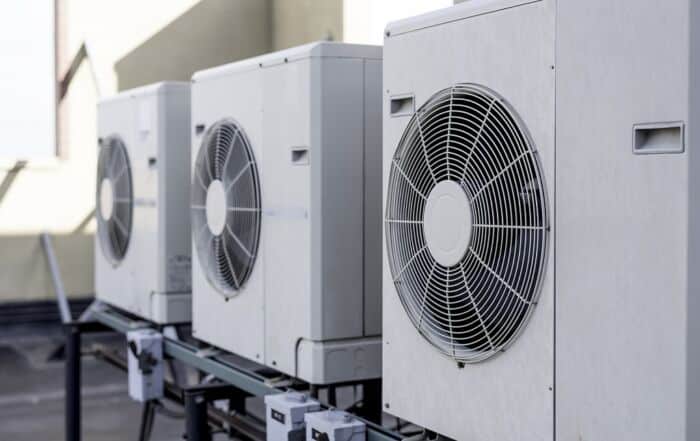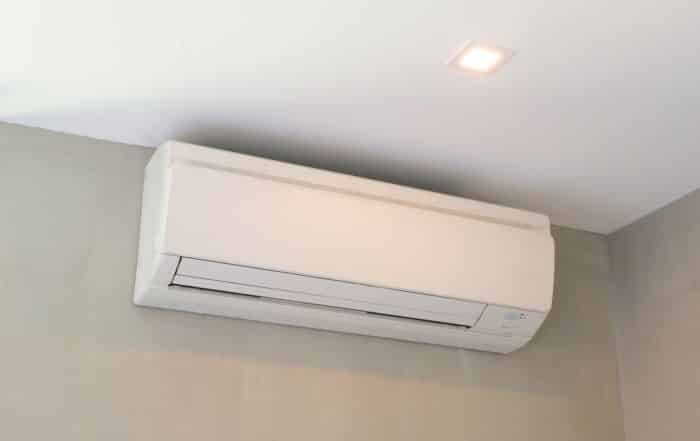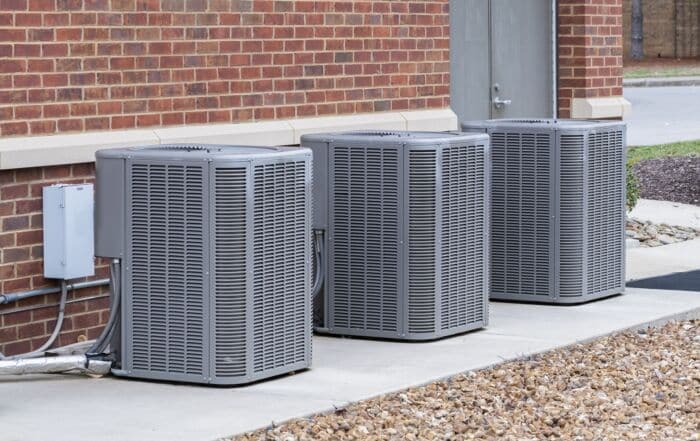How to Lower Cooling Costs in Summer
Are you looking for ways to reduce your cooling costs this summer?
Texans are known for their hot summers, and with energy bills on the rise, it's more important than ever to find ways to keep your home cool and comfortable without breaking the bank.
Air conditioning can be a huge expense, especially during the summer months. In fact, cooling bills account for almost half of the total electricity used in U.S. homes.
Dallas Heating and Air Conditioning can help you save money on your cooling costs this summer. By offering a wide range of affordable AC services, from repairs and maintenance to installation and replacement, we can help you stay cool and comfortable all season long.
Click this link to check out our services and read on to know more on how to reduce your cooling costs in the summer!
10 Ways to Reduce Your Cooling Costs In Summer
It's no secret that air conditioning can be a huge expense, especially during the summer months. In fact, cooling bills account for almost half of the total electricity used in U.S. homes.
You would want a modern, energy-efficient house that doesn't make your wallet light. If you're looking for ways how to reduce your air conditioning costs this summer, we've got you covered.
Here are 10 ways to reduce your cooling costs over the course of the summer:
Install a smart thermostat.
A smart, programmable thermostat can help you save money on your cooling costs by allowing you to set specific temperatures for different times of the day. This can help you keep your home cooler when you're away during the day and can also help you avoid cooling an empty house.
Find the right temperature for your house.
A comfortable temperature for your house will depend on how many people are living there and how much activity is taking place. A good rule of thumb is to set your thermostat to 78 degrees when you're home and awake and lower it by 10 to 15 degrees when you're away or asleep. Another option is to turn up your thermostat if it isn't uncomfortable at your home to also to reduce heating costs.
Close air vents in unused rooms
Closing vents in unused rooms can help keep the cool air concentrated in the rooms you are using. This will help you save money on your cooling costs by ensuring that the air conditioning unit is not working harder than necessary.
Invest on the best air conditioner for your home and use it wisely
There are several different types of air conditioners on the market, and it's important to find the one that best suits your needs. Once you have the right unit, be sure to use it wisely by only cooling the rooms you're using and keeping doors and windows closed as much as possible.
Keep doors and windows closed
Keep doors and windows closed when the AC is on to help keep the cool air from escaping. Excess heat can enter your home through open doors and windows, making your AC unit work harder than necessary. Doing so can also help with outdoor temperatures as well as indoor temperatures block heat from rooms that are not being used.
Use window coverings
Covers for your windows such as window films or window screens through east- and west-facing windows can help keep the sunlight and heat out of your home. Window coverings are important because they can help reduce the amount of heat that enters your home. This can help reduce the amount of work your air conditioner has to do to keep your home cool.
Clean your air filter whenever possible
A clean air filter can help your AC unit run more efficiently, because you don't want a dirty air filter for your home. A dirty filter blocks airflow and can also lead to compressor failure, causing air leaks and leading you to replace your entire AC unit. Keep your filter clean by checking it every month and replacing it as needed.
Service your AC unit
Regularly servicing your AC unit can help improve its efficiency and prevent costly repairs down the road. Be sure to have a professional technician or an energy conservation specialist to do an energy audit at least a year, and more frequently if it is older or has been used heavily. When it comes to AC repair, maintenance, or replacement, it's important to find a reputable professional who can get the job done right.
Avoid leaving different appliances on when not used
When the AC is on, try not to use other appliances that generate heat, such as ovens, washers, and dryers, when no one else is using them. These appliances can cause the AC to work harder and use more energy, leading to higher energy consumption later.
Check your insulation
Good insulation can help keep your home cooler in the summer and warmer in the winter. If you have an older home, it may be time to upgrade your insulation to a more energy-efficient option.
These are just some tips to help you reduce your air conditioning costs this summer. It can be a bit of a learning curve, but once you find what works best for your home, you can be sure to stay cool and save money at the same time!
For more information on how to improve the efficiency of your AC unit, contact us at Dallas Heating and Air Conditioning for AC services such as repair and maintenance.
What temperature should I set my thermostat in the summer to save money?
Most people know that they can make energy costs manageable by turning the thermostat down a few degrees in the summer, but how many people know what temperature to set it at if in Texas?
Summer in Texas is brutal. The temperatures routinely exceed 100 degrees, and the humidity can make it feel even hotter. Energy costs can climb quickly when homeowners try to keep their homes cool during this time of year.
What many homeowners don't know is that there are some easy ways to save money on cooling costs without making your home uncomfortably warm.
The Department of Energy recommends that homeowners set their thermostats to 78 degrees when they are home and awake, which is degrees cooler than turning it up to 82 or 84 degrees when you are away or sleeping. This ensures energy efficiency and prevents excessive cooling when it's not needed.
To make sure you won't go overboard on your energy costs, especially AC costs, be sure to check your local energy provider's summer schedule. Many offer reduced rates during the cooler evening hours, which means you can notice a drop in energy bills by turning your thermostat up a few degrees during the day and then back down at night.
Still unsure about the degrees to set your thermostat? Contact an energy consumption specialist to check up on how your home is being cooled and make recommendations for improvement. If you are in need for better air conditioning repair and maintenance services, then contact us now for quote on what you need to do to save on your electricity bills.
Is it cheaper to leave window AC on all day?
Window AC units can be a great way to cool your home during the summer if you're on a budget. But many people are unsure if it is cheaper to leave them on all day or turn them off when not home. Air conditioner usage can really add up later on if you leave it unattended.
In fact, it is cheaper to turn your window AC unit off when you are not home. It may seem counterintuitive but running your AC all day can actually lead to higher energy consumption and bills, and inconsistent air flow in your house.
When you leave your AC on all day, the unit must work harder to keep your home cool, which can use more energy and raise your costs. It's also important to note that AC units generally work best when they are turned on and off at the same time each day.
Although a window AC is cheaper than a central one, it's good to invest on the latter if you want to cut electricity costs. An efficient air conditioner can save you hundreds of dollars on your electric bill each year.
So, if you want to save money on your cooling costs this summer, be sure to turn off your window AC unit when you leave the house. If you need help with any AC repairs or maintenance, contact us today for an inspection.
Contact the Dallas Air Conditioning Pros
With the hot weather on its way, it's more important than ever to make sure your AC is up for the challenge. Luckily, there are a few simple things you can do to help keep your cooling costs low on a regular basis and your home comfortable all summer long.
Contact Dallas Heating and Air Conditioning today for more information about how you can save this summer with your AC!
Call us at (214) 710-2515 for our 24/7 service, or visit our website at www.dallasheatingac.com
Important regions in Texas
Texas is the second largest state in the United States, and it is home to a variety of climates. The state is divided into four main regions: East Texas, West Texas, North Texas, and South Texas.
- Prairies and Lakes Region: The Prairies and Lakes region is in the eastern part of the state. This region is home to a variety of lakes, including Caddo Lake, Lake Texoma, and Toledo Bend Reservoir. The climate in this region is humid subtropical, with hot summers and mild winters. This area includes the metropolitan area of Dallas-Fort Worth.
- Gulf Coast: The Gulf Coast region is in the southeastern part of the state, along the Gulf of Mexico. This region has a humid subtropical climate, with hot summers and mild winters. The cities of Houston, Galveston, and Corpus Christi are in this region.
- South Texas Plains: The South Texas Plains region is located in the southern part of the state. This region has a subtropical climate, with hot summers and mild winters. The major cities in this region include San Antonio and Austin.
- High Plains: The High Plains region is located in the western part of the state. This region has a semi-arid climate, with hot summers and cool winters. The cities of El Paso and Amarillo are in this region.
Related Posts
Exploring Ductless Air Conditioning Systems for Small Spaces
If you’re a homeowner tired of sweating through sweltering summers, a ductless air conditioning [...]
Signs Your Air Conditioning Unit Needs Professional Maintenance
Imagine coming home on a sweltering summer day only to find that your air [...]
Common Misconceptions About Air Conditioning Usage and Costs
Air conditioning units are a staple in many homes, especially during the hot summer [...]


